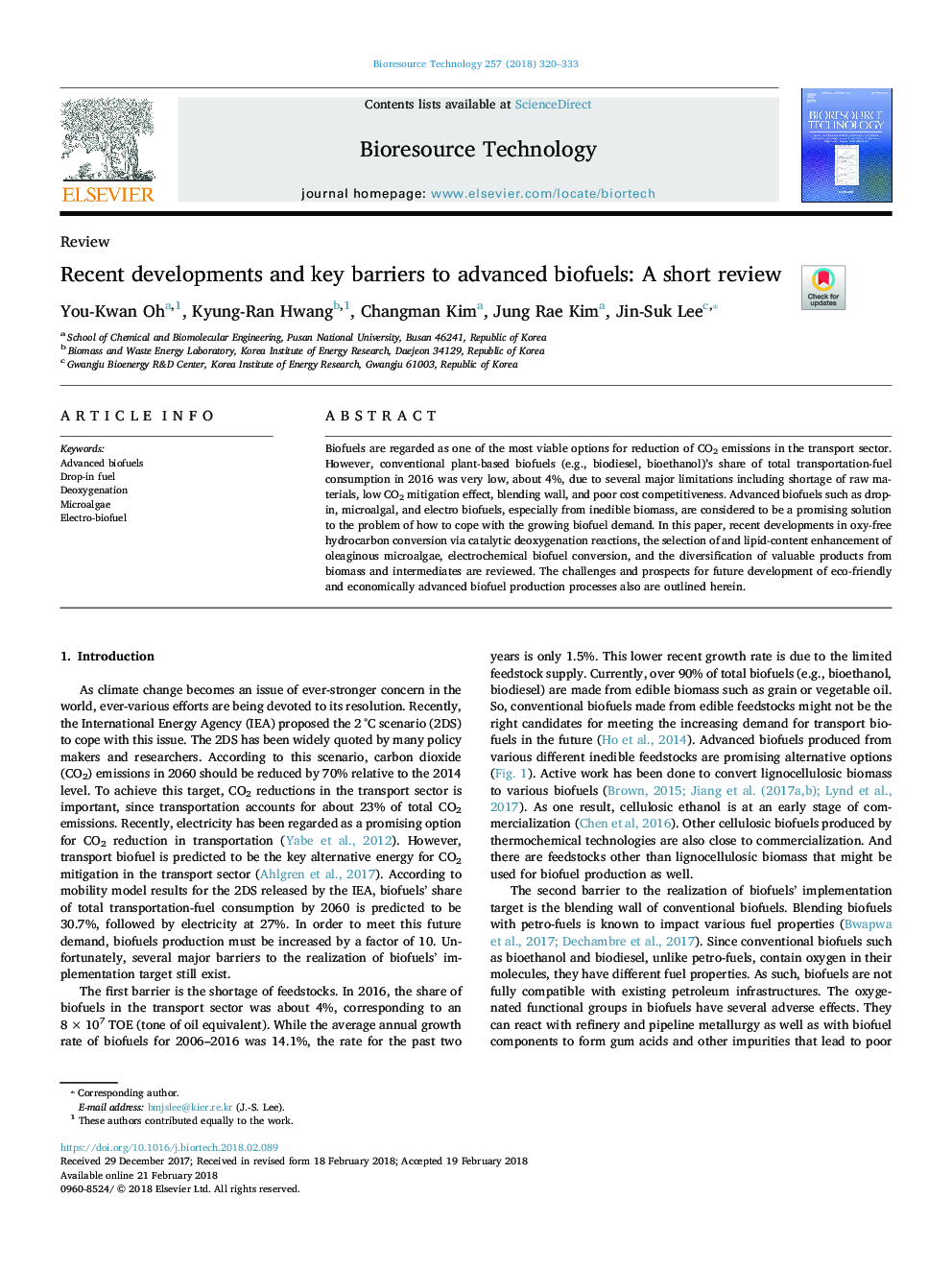| Article ID | Journal | Published Year | Pages | File Type |
|---|---|---|---|---|
| 7067665 | Bioresource Technology | 2018 | 14 Pages |
Abstract
Biofuels are regarded as one of the most viable options for reduction of CO2 emissions in the transport sector. However, conventional plant-based biofuels (e.g., biodiesel, bioethanol)'s share of total transportation-fuel consumption in 2016 was very low, about 4%, due to several major limitations including shortage of raw materials, low CO2 mitigation effect, blending wall, and poor cost competitiveness. Advanced biofuels such as drop-in, microalgal, and electro biofuels, especially from inedible biomass, are considered to be a promising solution to the problem of how to cope with the growing biofuel demand. In this paper, recent developments in oxy-free hydrocarbon conversion via catalytic deoxygenation reactions, the selection of and lipid-content enhancement of oleaginous microalgae, electrochemical biofuel conversion, and the diversification of valuable products from biomass and intermediates are reviewed. The challenges and prospects for future development of eco-friendly and economically advanced biofuel production processes also are outlined herein.
Related Topics
Physical Sciences and Engineering
Chemical Engineering
Process Chemistry and Technology
Authors
You-Kwan Oh, Kyung-Ran Hwang, Changman Kim, Jung Rae Kim, Jin-Suk Lee,
